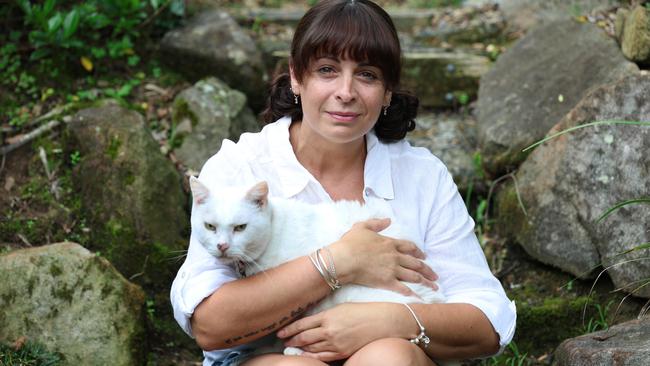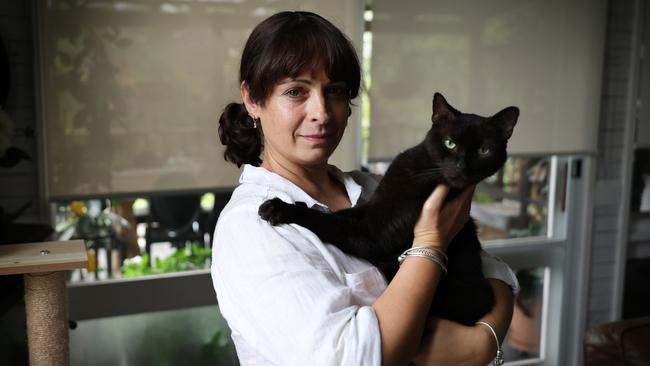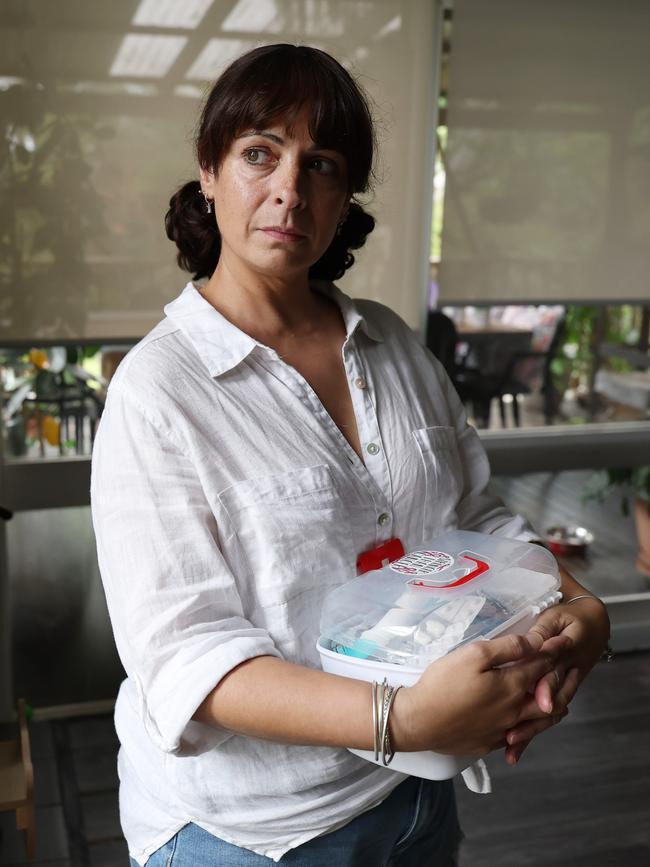Battling cancer was no walk in the park. I wasn’t prepared for what came next
When Aalia Ahmed visited her doctor about her ‘strange symptoms’, he assured her she was not going crazy.

When Aalia Ahmed was experiencing an extreme bout of fatigue, she attributed it to the stress of starting a new job only three weeks earlier. Then, as she was getting ready for bed one night, she brushed her hand against a lump on her breast.
She stopped and felt it again. It was undeniable and large, yet she had not noticed it just days earlier when she had been bra shopping. Now, as she stood alone in her bedroom, a sense of cold worry washed over the then 44-year-old.
Ahmed went to her GP and booked in for a mammogram but was told there was a three-week wait to get it done through the public system. When she was at work the next day, the worry of the lump played on her mind and she knew she needed to have it looked at sooner for her own reassurance.
That night she went to her local emergency department, where an ultrasound showed the mass was vascular. “I already knew that wasn’t a good sign,” she says. “Then I went from having jovial, almost dismissive conversations with staff, to them squatting on the floor to tell me that they found a 7cm lump and they wanted it biopsied straight away.”
But she was told the hospital was not equipped to complete the procedure because doctors were worried about potential bleeding. She would need a more specialised clinic.
“My only option was to go to the Mater Hospital as a private patient and pay $800 to have a biopsy done, which I had done three days later.”

That bill alone was almost as much as she earned in a week as the manager of a retail store. Two days later she was diagnosed with stage three triple-negative breast cancer.
Through the shock of her diagnosis, one saving grace was the support she received from her new employer at Bed Bath N’ Table. Her regional manager told her to take all the time she needed and held her job until she was well enough to return 12 months later.
While surgery and chemotherapy were no walk in the park, Ahmed says she coped with both relatively well, despite developing numerous infections and having a low platelet count. What she did not expect to hit her with such force was medically induced menopause.
“I actually found the whole menopause journey more difficult than the cancer journey,” she says.
Her symptoms began with hot flushes every 35 minutes. They were so extreme, sweat would drip uncontrollably from her body and pool on the ground.
“That was horrible,” she says. “Then after that came really bad anxiety, but I guess it’s also very hard to know whether that’s a delayed reaction to what you’ve been through in the last 12 months or whether it’s the hormones, or whether it’s a combination of the two.
“I had severe sleeping difficulties, so I was sleeping in about 45-minute brackets. Being so exhausted didn’t help with the anxiety and depression, and there was a bit of rage I think was probably just frustration as well.”
Ahmed also experienced headaches, joint pain and stiffness so intense that on one occasion, after returning to work, she had to be helped back on to her feet after seizing up and getting stuck while squatting to restock a low shelf. There was also fatigue.
“I was just going to work like a zombie, and then coming home and sleeping, and doing it all over again. I had absolutely no quality of life,” she says.
“I went from having jovial, almost dismissive conversations with staff, to them squatting on the floor to tell me that they found a 7cm lump and they wanted it biopsied straight away”
“From a relationship point of view, I didn’t have too many problems with things like a drop in libido. But I was having a lot of issues physiologically: skin splitting, dryness, all that kind of stuff. It’s not very romantic and takes the pleasure out of it. It was definitely not an easy time for me at all. I actually thought I was losing my mind.”
Worst of all, she says, she was not pre-warned that the treatment that would save her life would induce menopause. It was not until she asked why her period had not returned when her chemotherapy ended that she was told it likely never would. That was the extent of advice she was given.
Ahmed visited her doctor about her “strange symptoms” and he assured her she was not going crazy but instead was experiencing severe symptoms of menopause. She then was referred to a menopause clinic because of her complex medical history.
Four days after starting menopausal hormone therapy, she joked that she felt superhuman. She says, though, that it took more than a year to find the right hormone balance for her.
“It’s completely changed my life; I’ve got a life now. I’ve got the energy to do things and not just feel like I’m stuck in that hamster wheel of sleeping, eating and going to my job.”
In speaking with other cancer patients, she realised many faced intense pushback from doctors when it came to MHT, even if their cancer was not hormone-related.
“The attitude from a lot of doctors seems to be: ‘Well, this is what it is; you’re alive, you should be grateful.’ So you just need to deal with it. I think that’s a terrible attitude to have after everything we’ve been through. We deserve to have a life,” she says through tears.
Ahmed, now 47, was discharged from oncology three months ago and now has five years of close monitoring to ensure there is no recurrence of her cancer. She knows her life will never be the same but she is feeling good.
What has come as a shock, though, has been the post-cancer costs for ongoing medication to keep her alive and well. Complicating matters, Ahmed has four auto-immune conditions that all require monitoring and treatment. She estimates that between those and cancer and menopause, she spends about $110 a week on medications. She then balances that bill with other essentials and runs a cat rescue on the side, all on her retail wage.
“There are weeks when I have to cut back on food so I can afford my medications, which is not a priority anyone should be having to make in Australia,” she says.
“Maybe there could be some sort of – it’s never going to happen – but I’m dreaming of some sort of healthcare card for people that are post cancer and need certain medications that are essential to their livelihood.

“The first thing that I said when I was given my diagnosis was ‘How am I going to pay for this?’, which is a terrible thing for people to be concerned about when they’re potentially dying.”
It’s experiences such as hers that national charity Inherited Cancers Australia wants to learn more about. It has teamed up with the Jean Hailes Centre and together they plan on developing resources for health professionals and others who want to learn more about medically induced menopause and support women through it.
To do that, they have launched a survey to better understand the experiences of people who have been through it. The survey is open until February 24 and the results will help to shape what the resources will look like.
“We see first-hand how our community struggles with medically induced menopause and the gaps in support and information. This survey will provide valuable data to inform more tailored resources and information – ultimately making the experience easier for those who come next,” Inherited Cancers Australia chief executive Sarah Powell says.





To join the conversation, please log in. Don't have an account? Register
Join the conversation, you are commenting as Logout